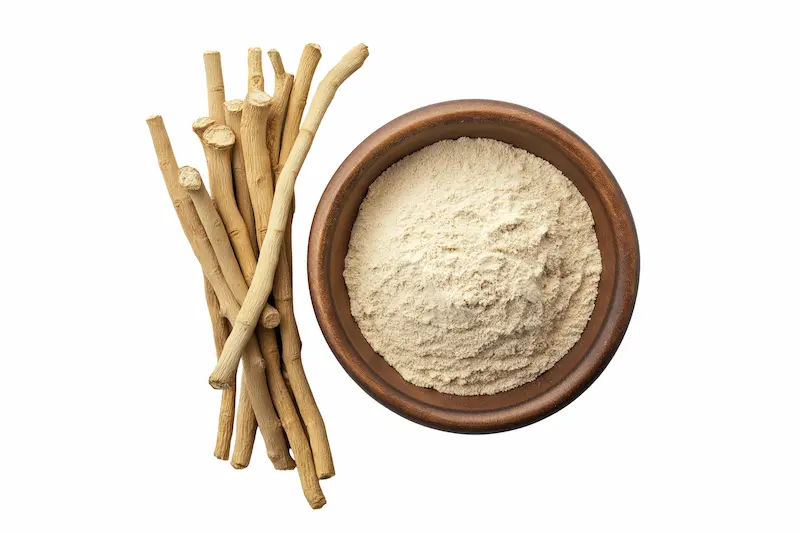Your Ultimate Guide to Finding Good Soya Milk and Other Healthy Milk Alternatives
Discover how to choose the best soya milk and other plant-based milk alternatives with our comprehensive guide. Learn nutritional benefits, comparisons, and smart shopping tips.


Introduction
Walking down the dairy aisle isn't as simple as it used to be. Where once there was just cow's milk, now you're faced with a vibrant array of cartons: soya, almond, oat, coconut, and more. This expansion is a response to our evolving health needs, dietary preferences, and environmental awareness. But with so many options, how do you identify what truly makes a good soya milk or a wholesome alternative? This guide cuts through the noise. We’ll explore the nutritional science behind soya milk, pit it against other popular plant-based milks, and provide a practical checklist for making the smartest choice for you and your family. Whether you're lactose-intolerant, vegan, or simply curious, understanding the pros and cons of each option empowers you to turn your daily glass of milk into a conscious and beneficial part of your diet. Let's dive in.
Why the Search for Good Milk? Understanding the Shift in Consumer Habits
The move away from traditional dairy is not a fleeting trend but a fundamental shift driven by several key factors.
The Rise of Lactose Intolerance and Dairy Allergies
A significant portion of the global population, especially in Asia, experiences lactose intolerance. This condition, where the body cannot properly digest lactose (the sugar in milk), leads to bloating, gas, and discomfort. For these individuals, plant-based milks like good soya milk offer a completely lactose-free solution, allowing them to enjoy cereals, smoothies, and coffee without digestive distress.
Embracing Plant-Based and Vegan Lifestyles
The growing adoption of veganism, driven by animal welfare concerns, has propelled plant-based milks into the mainstream. These products provide a cruelty-free alternative that aligns with vegan ethics, making them a staple in millions of households worldwide.
Environmental and Ethical Considerations
Many consumers are now considering the carbon footprint of their food. Dairy farming is resource-intensive, requiring significant water and land while contributing to greenhouse gas emissions. Plant-based milks, particularly oat and soya, generally have a lower environmental impact, making them an attractive choice for the eco-conscious shopper.
Soya Milk in the Spotlight: A Deep Dive into the Original Plant Powerhouse
Soya milk, made by soaking and grinding soybeans, is one of the most nutritionally complete plant-based milks available.
Consult a Specialist for the best advice
The Impressive Nutritional Profile of Good Soya Milk
A cup of fortified, unsweetened soya milk typically contains:
- Protein: 7-9 grams, which is comparable to cow's milk.
- Calcium: Fortified versions provide around 30% of the Daily Value (DV), crucial for bone health.
- Potassium: Supports heart and muscle function.
- Isoflavones: Unique plant compounds with antioxidant properties.
Health Benefits: From Heart Health to Bone Strength
Regular consumption of good soya milk has been linked to several health benefits. The high-quality protein supports muscle maintenance, while the isoflavones may help reduce LDL ("bad") cholesterol levels, promoting heart health. For women going through menopause, soya may help mitigate hot flashes and support bone density due to its isoflavone and calcium content.
Addressing Common Concerns: Phytoestrogens and GMOs
A common worry about soya involves phytoestrogens (isoflavones), which are plant-based compounds that mimic oestrogen. However, extensive research, including large-scale studies, has shown that moderate consumption of whole-soy foods does not adversely affect hormone levels in men or women and may even be protective against certain cancers. To avoid GMOs, simply look for brands that are certified organic or labelled "Non-GMO Project Verified."
Beyond Soya: A Tour of the Modern Milk Aisle
The plant-based milk market has exploded with options. Here’s a quick guide to the other contenders.
- Almond Milk: A low-calorie favourite (around 30-50 calories per cup), but it's very low in protein (1 gram). It's a good choice for those primarily watching their calorie intake.
- Oat Milk: Known for its naturally creamy texture and slight sweetness, it's a barista's dream for frothing. It's higher in carbs than other options but often contains beta-glucans, a fibre beneficial for heart health.
- Coconut Milk: Very low in protein and carbs but higher in saturated fats. It adds a rich, tropical flavour to curries and smoothies but should be consumed in moderation.
- Cashew and Macadamia Milk: Similar to almond milk in their low protein content but often creamier due to their higher fat content. They offer a luxurious mouthfeel.
- Rice Milk: The most hypoallergenic of all, making it safe for those with nut or soya allergies. However, it's high in carbohydrates and low in protein and other nutrients unless fortified.
- Pea Milk: A newcomer made from yellow peas. It's a strong protein-packed innovator, with protein content rivalling soya milk, and has a very neutral flavour.
The Ultimate Comparison Chart: Soya Milk vs. The Competition
How to Identify Truly Good Soya Milk: A Smart Shopper’s Checklist
Not all soya milks are created equal. Follow this checklist to ensure you're getting a quality product.
Priority #1: Choose "Unsweetened"
This is the most critical step. "Original" or "Sweetened" versions can contain 5-10+ grams of added sugar per serving. "Unsweetened" ensures you're getting the natural benefits of soya without the empty calories.
Look for Fortification: Calcium and Vitamin D are Key
Since plant-based milks don't naturally contain the calcium and vitamin D found in dairy, fortification with calcium and vitamin D is essential. Aim for a product that provides at least 20-30% of your DV for these nutrients to support bone health.
Ingredient List Decoder: Keep it Short and Simple
The best soya milks have a short ingredient list: filtered water, whole soybeans (or soya protein isolate), and maybe some stabilisers like gellan gum. Avoid products with long lists of artificial flavours, thickeners, and excessive oils.
Special Considerations: Choosing the Right Milk for Your Needs
- Best for Muscle Building and High Protein: Soya milk and Pea milk are your top choices due to their complete protein profile.
- Best for Weight Management: Unsweetened Almond Milk or Unsweetened Cashew Milk are very low in calories, making them ideal for calorie-restricted diets.
- Best for Coffee Baristas: Oat Milk and specially formulated Barista-Blend Soya Milk steam and froth beautifully, creating a creamy latte or cappuccino.
- Best for Children and Toddlers: If a child cannot consume dairy, fortified, unsweetened soya milk is often the recommended alternative by paediatric nutritionists due to its protein and nutrient content. It is crucial to consult a paediatrician before making a switch to ensure all nutritional needs are met.
Conclusion
The quest for good soya milk and other alternatives is a positive step towards personalised nutrition. There is no single "best" milk for everyone. The ideal choice depends entirely on your individual health objectives—whether you're seeking high protein for fitness, low calories for weight management, or simply a delicious dairy-free creamer for your coffee. By understanding the unique benefits of soya, almond, oat, and other milks, and by becoming a vigilant label reader, you can confidently navigate the modern milk aisle. Use this guide as a starting point, don't be afraid to experiment with different brands and types, and listen to your body. It will tell you what works best. If you have specific health conditions like thyroid issues or severe allergies, it's always a good idea to consult a doctor or nutritionist on Apollo24|7 for personalised advice tailored to your needs.
Consult a Specialist for the best advice
Consult a Specialist for the best advice

Dr. Abhirup Chakrabarti
General Practitioner
10 Years • MBBS
Chennai
Dr Abhirup Chakrabarti, Chennai
Dr. Robin Jeya Bensam
General Practitioner
25 Years • MBBS, AFIH, FCIP, FRSH
Chennai
Robin Hospitals, Chennai

Dr. Aakash Shah
General Practitioner
6 Years • MBBS, DNB Emergency Medicine
Delhi
AIIMS, Delhi

Dr. Ritesh Motghare
General Practitioner
18 Years • MBBS PGCDM
Nagpur
HEALTH CENTRE VNIT NAGPUR, Nagpur
Dr. V R Tindwani
General Practitioner
49 Years • MBBS
Ahmedabad
Tindwani Clinic, Ahmedabad
Consult a Specialist for the best advice

Dr. Abhirup Chakrabarti
General Practitioner
10 Years • MBBS
Chennai
Dr Abhirup Chakrabarti, Chennai
Dr. Robin Jeya Bensam
General Practitioner
25 Years • MBBS, AFIH, FCIP, FRSH
Chennai
Robin Hospitals, Chennai

Dr. Aakash Shah
General Practitioner
6 Years • MBBS, DNB Emergency Medicine
Delhi
AIIMS, Delhi

Dr. Ritesh Motghare
General Practitioner
18 Years • MBBS PGCDM
Nagpur
HEALTH CENTRE VNIT NAGPUR, Nagpur
Dr. V R Tindwani
General Practitioner
49 Years • MBBS
Ahmedabad
Tindwani Clinic, Ahmedabad
More articles from General Medical Consultation
Frequently Asked Questions
Is soya milk good for men?
Yes, moderate consumption of soya milk is perfectly safe and beneficial for men. The isoflavones in soya do not lower testosterone levels. In fact, the high-quality protein and heart-healthy fats make it an excellent dietary addition.
What is the healthiest milk alternative for weight loss?
Unsweetened almond milk is typically the lowest in calories. However, unsweetened soya milk is also a great option as its higher protein content can help you feel fuller for longer, potentially reducing overall calorie intake.
Can I give soya milk to my lactose-intolerant child?
Fortified, unsweetened soya milk is a common alternative for children with lactose intolerance or a cow's milk protein allergy. However, you should always consult a paediatrician on Apollo24|7 before making this dietary change to ensure it's appropriate for your child's specific nutritional requirements.
Does soya milk cause breast cancer?
Current scientific evidence from major cancer organisations suggests that consuming whole-soy foods, like soya milk, is safe and may even be protective against breast cancer risk and recurrence. The old concerns have been largely dispelled by modern research.
How does the environmental impact of soya milk compare to almond milk?
Soya milk generally has a lower water footprint than almond milk (which is very water-intensive) but a higher land-use footprint. Oat milk is often considered the most environmentally sustainable option overall.




